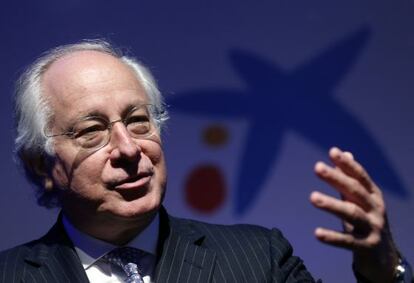Main Spanish lenders post big gains in earnings through to September
BBVA cuts cash dividend payment in line with central bank recommendation

Spain’s leading banks have enjoyed a recovery in their earnings in the first nine months of the year, with BBVA on Friday reporting an increase in its net income of 85.5 percent to 3.08 billion euros, while CaixaBank announced a 164.5-percent rise in its net attributable profit to 426 million euros.
Spain’s biggest bank Banco Santander on Thursday reported a rise of 77 percent in its net profit to 3.310 billion euros.
However, BBVA’s earnings came in below analysts’ forecasts after Spain’s second-largest lender made an extraordinary provision of 600 million euros as a result of reclassifying refinanced loans worth 3.864 billion euros as doubtful in line with new criteria introduced by the Bank of Spain.
BBVA also announced a cut in its cash dividend following a recommendation by the central back that these be limited this year to 25 percent of earnings. The bank will specifically omit an interim dividend in January of next year, which last year was 0.10 euros. Instead, it will increase its interim dividend payable in April to 0.17 euros from 0.12 euros a year earlier. That dividend allows the option of receiving payment in cash or in the form of shares. The total result will be a fall of 50 percent in the cash dividend payable from 2013 earnings, and a fall of 12 percent of the total remuneration received on 2012 earnings.
BBVA said that from 2014 onward it will move toward paying a cash dividend equivalent to 35 to 40 percent of earnings. “Our cash dividend commitment going forward is a clear sign of our confidence in the growth of future earnings,” Chief Operating Officer Ángel Cano said.
CaixaBank’s earnings were also boosted by a fall in funding costs
The loan reclassification exercise helped push up BBVA’s non-performing loan ratio to 6.7 percent as of the end of September from 5.5 percent at the end of June. The bank’s core capital ratio climbed to 11.4 percent from 11.3 percent. The bank’s net interest income — the difference between what it earns on loans and what it pays out on deposits — declined 8.1 percent to 7.954 billion euros.
BBVA’s earnings were underpinned by its overseas businesses, particularly in emerging markets, which helped offset ongoing weakness in Spain, where gross income fell 7.5 percent from a year earlier to 4.73 billion euros after the elimination of floor clauses on home mortgage rates.
“The focus still has to be Spain as an ongoing drag on earnings,” Bloomberg quoted Daragh Quinn, an analyst at Nomura International in Madrid, as saying.
CaixaBank’s earnings were boosted by the absorption of Banca Cívica and Banco de Valencia and the generation of “sustained” revenues from its core banking business.
The bank said it made provisions and writedowns worth 5.956 billion euros in the nine months, of which 2.507 billion entailed a downward adjustment in the value of Banco de Valencia and Banca Cívica on its books.
After the adjustments, CaixaBank’s core capital ratio stood at 12.5 percent at the end of September. The bank’s loan default ratio rose to 11.4 percent at the end of the third quarter from 11.17 percent as of June.
At a news conference in Barcelona broadcast through CaixaBank’s website, Chief Executive Juan María Nin said apart from the contribution of Banco de Valencia and Banca Cívica, the bank’s performance also reflected lower funding costs.
CaixaBank expects to generate synergies from the absorption of the two units of 423 million euros this year, rising to 682 million in 2015.
Tu suscripción se está usando en otro dispositivo
¿Quieres añadir otro usuario a tu suscripción?
Si continúas leyendo en este dispositivo, no se podrá leer en el otro.
FlechaTu suscripción se está usando en otro dispositivo y solo puedes acceder a EL PAÍS desde un dispositivo a la vez.
Si quieres compartir tu cuenta, cambia tu suscripción a la modalidad Premium, así podrás añadir otro usuario. Cada uno accederá con su propia cuenta de email, lo que os permitirá personalizar vuestra experiencia en EL PAÍS.
¿Tienes una suscripción de empresa? Accede aquí para contratar más cuentas.
En el caso de no saber quién está usando tu cuenta, te recomendamos cambiar tu contraseña aquí.
Si decides continuar compartiendo tu cuenta, este mensaje se mostrará en tu dispositivo y en el de la otra persona que está usando tu cuenta de forma indefinida, afectando a tu experiencia de lectura. Puedes consultar aquí los términos y condiciones de la suscripción digital.








































